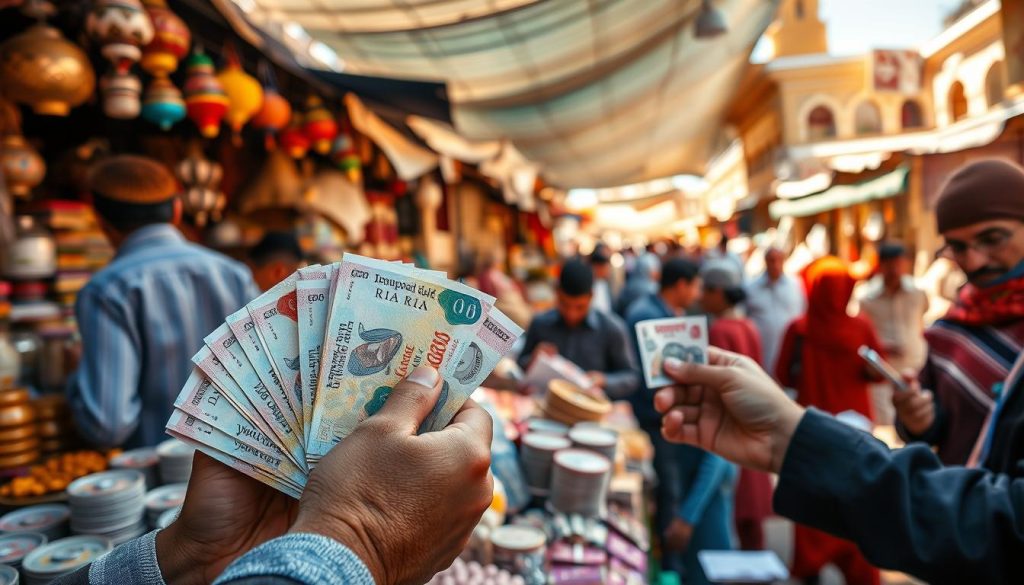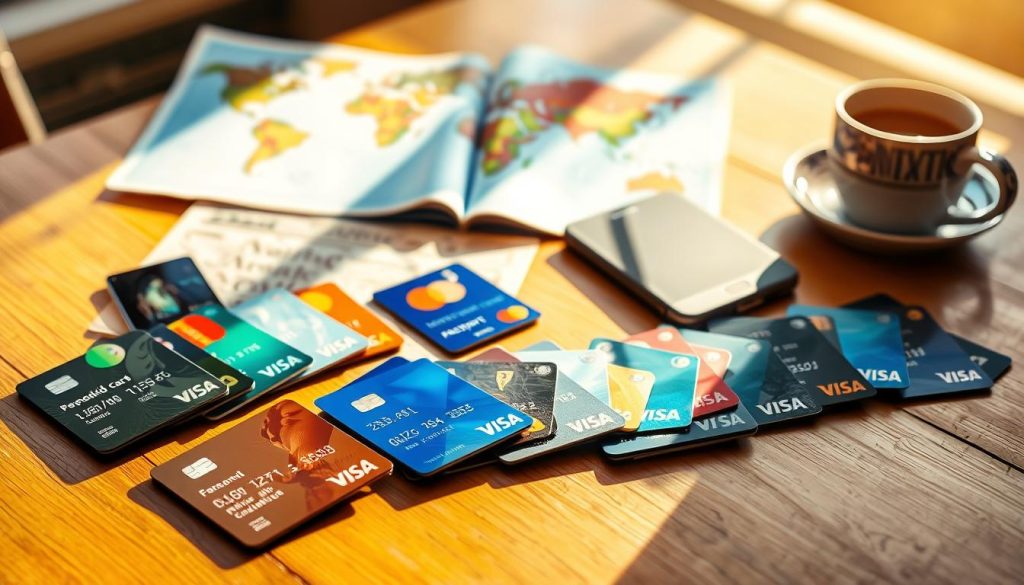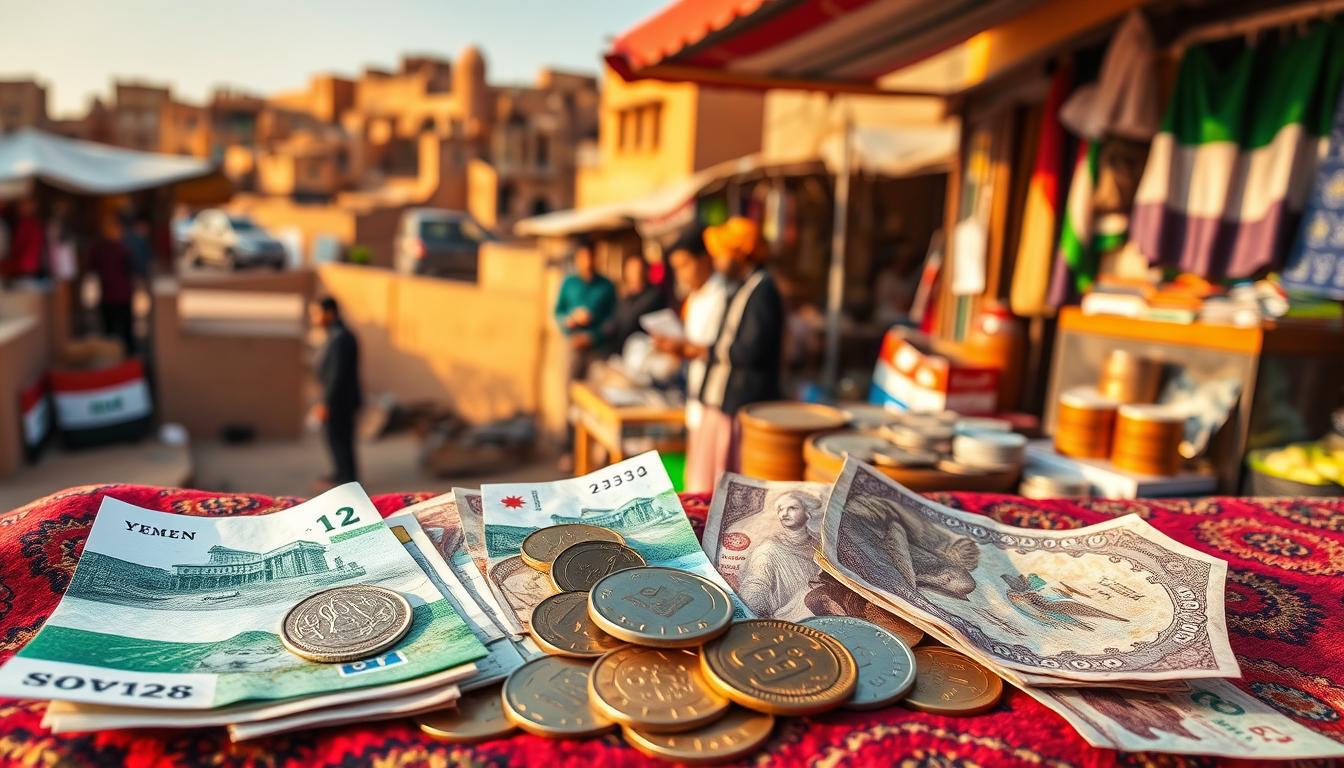Did you know that the Yemeni rial is the only official currency accepted in the country? This means you’ll need to plan ahead to manage your money effectively during your visit. Understanding the local financial landscape is crucial for a smooth experience.
While cash is widely used, card payments are becoming more common in larger cities and hotels. However, ATMs are limited, so it’s wise to carry enough local currency for your needs. Exchanging money at the airport or authorized centers ensures you get a fair rate.
In this guide, we’ll explore the best ways to handle payments, from using cards to finding reliable ATMs. Whether you’re planning a short trip or an extended stay, these tips will help you navigate the financial system with confidence.
Exploring Yemen’s Currency: The Yemeni Rial and Money Matters
Handling money in Yemen starts with knowing the local currency, the rial. The Yemeni rial (YER) is the only legal tender accepted across the country. Understanding its denominations and exchange options will make your trip smoother.

Overview of Yemeni Rial Denominations and Coins
The Yemeni rial comes in both notes and coins. Notes are more commonly used, with denominations of YER1,000, 500, 200, 100, and 50. Coins are available in YER20, 10, 5, and 1, but smaller coins are rarely used in daily transactions.
| Denomination | Type |
|---|---|
| YER1,000 | Note |
| YER500 | Note |
| YER200 | Note |
| YER100 | Note |
| YER50 | Note |
| YER20 | Coin |
| YER10 | Coin |
| YER5 | Coin |
| YER1 | Coin |
Currency Exchange Options and Local Restrictions
Exchanging foreign currency for Yemeni rials is straightforward. You can visit banks, bureaux de change, or even some hotels. However, it’s essential to use official exchange bureaus to get a fair exchange rate.
Be aware of local restrictions. Importing or exporting Yemeni rials is prohibited. For foreign currency, there are specific rules you must follow. Always carry a mix of cash and cards, as ATMs are limited outside major cities.
“Planning your financial transactions ahead of time ensures a stress-free experience.”
For immediate needs, consider exchanging US dollars or Pounds Sterling upon arrival. This will help you cover initial expenses like hotel stays or transportation. Always check the latest guidelines to avoid any legal issues.
Navigating Payment Methods and Travel Tips
Managing your finances while traveling requires knowing the best payment methods available. Whether you’re using cash, cards, or mobile payments, understanding the options ensures a smooth experience. Let’s explore the most convenient and secure ways to handle your money during your trip.

Credit, Debit, and Mobile Payments
Credit and debit cards are widely accepted in tourist areas, with VISA and Mastercard being the most common. Many hotels and restaurants in larger cities will take card payments. However, it’s wise to carry some cash for smaller vendors or rural areas.
Mobile payments are gaining popularity, but their availability is still limited. Before relying on this option, check if your preferred app is supported. Always have a backup plan, such as a physical card or local currency.
ATM Accessibility and Security Tips
ATMs are available in major cities like Sana’a, Aden, and Tai’z. However, they are scarce in rural areas. Plan your withdrawals accordingly to avoid running out of cash.
When using ATMs, prioritize those located in secure areas like airports, banks, or hotels. Be cautious of hidden fees, including transaction charges and exchange rate markups. Always shield your PIN and avoid using ATMs at night.
Managing Tipping and Service Charges
Tipping is a common practice in many establishments. A standard tip of 15-20% is appreciated for good service in restaurants. For smaller services, rounding up the bill is often sufficient.
Some places may include a service charge on the bill. Check before adding an extra tip. Carry small denominations of cash to make tipping easier and more convenient.
| Payment Method | Pros | Cons |
|---|---|---|
| Cash | Widely accepted, no transaction fees | Risk of loss or theft |
| Card | Convenient, secure | Limited acceptance in rural areas |
| Mobile Payments | Growing availability, fast transactions | Limited support, requires internet |
Yemen: Ultimate Travelers Guide to Currencies & Payments
Planning your finances for international travel can save you time and money. One of the best ways to manage your money is by using prepaid travel cards. These cards offer flexibility and security, making them ideal for travelers.

Benefits of Prepaid Travel Cards
Prepaid travel cards, like those from Revolut or Wise, allow you to load multiple currencies onto a single card. This feature helps you avoid dynamic currency conversion charges and hidden fees. You can also lock in favorable exchange rates before your trip.
These cards are widely accepted at ATMs and merchants worldwide. They provide a secure alternative to carrying large amounts of cash. Plus, you can easily track your spending through mobile apps.
Conducting International Money Transfers
When transferring money internationally, traditional banks often charge high fees. Instead, consider using global providers like Wise or TransferWise. These platforms offer competitive exchange rates and lower transaction costs.
Always monitor live exchange rates to ensure you get the best deal. Timing your transfers can save you significant amounts of money. Use online tools to stay updated on rate fluctuations.
| Financial Tool | Advantages | Considerations |
|---|---|---|
| Prepaid Travel Cards | Multi-currency support, low fees, secure | May have loading limits |
| International Money Transfers | Competitive rates, fast processing | Requires internet access |
By leveraging these tools, you can simplify your financial transactions and focus on enjoying your trip. Always carry a mix of cash and cards for flexibility. With the right strategy, managing your money abroad becomes stress-free.
Conclusion
Understanding the local currency and payment options is essential for a smooth experience. The Yemeni rial is the primary cash used, so plan ahead to ensure you have enough for your needs. Credit and debit cards are accepted in larger cities, but carrying cash is advisable for rural areas.
Using ATMs in secure locations can help you avoid unnecessary fees. Prepaid travel cards are a great alternative, offering flexibility and better exchange rates. Always research trusted providers for money transfers to save on costs.
Being well-prepared financially enhances your overall travel experience. Stay informed about local guidelines and monitor exchange rates to make the most of your budget. With the right strategy, managing your finances becomes stress-free and efficient.
The above is subject to change.
Check back often to TRAVEL.COM for the latest travel tips and deals.







0 Comments